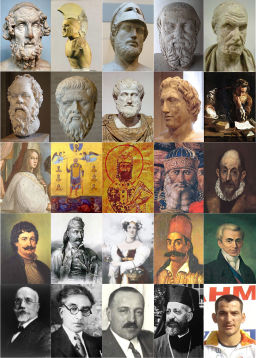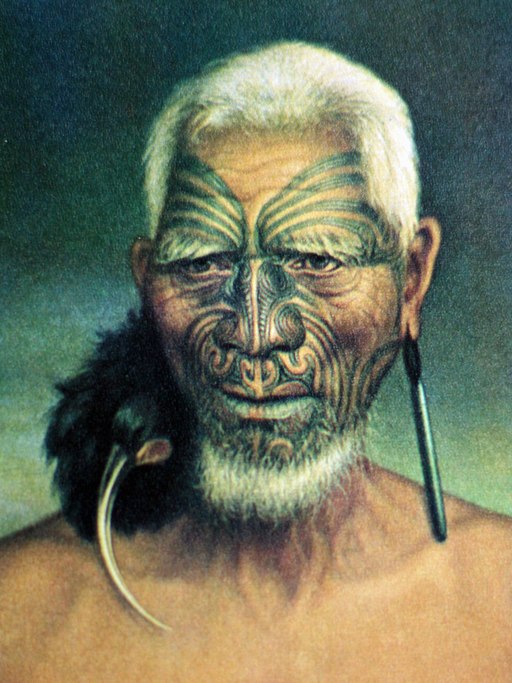
The Musicians by Caravaggio shows four boys in classical costume, three playing various musical instruments and singing, the fourth is dressed as Cupid, and reaching towards a bunch of grapes.
Caravaggio seems to have composed the painting based on the studies of two key figures. The central character with the lute has been identified with Caravaggio’s companion Mario Minniti, and the individual next to him and facing the viewer is possibly a self-portrait of Caravaggio. The cupid bears a strong resemblance to a boy he painted in two previous paintings.
The manuscripts show that the boys are practicing a secular vocal music composition celebrating love, and the eyes of the central figure are moist with tears.
The violin in the foreground invites the viewer to join. This painting was Caravaggio’s most complex composition to date, and he struggled with painting the four figures separately and then trying to relate each to the other.
The picture-space and the overall effect is not as masterly as his later works.
Scenes showing musicians were a favorite theme at the time. The Church was supporting a revival of music, and new styles were being tried, especially by educated and progressive Church officials.
Caravaggio
Caravaggio was active in Rome, Naples, Malta, and Sicily from the early 1590s to 1610. His paintings combine the realistic observation of the physical and emotional human situation with the dramatic use of lighting.
He made the technique of darkening shadows and transfixing subjects in bright shafts of light his dominant stylistic element.
His influence on the new Baroque style that emerged from Mannerism was profound. In the 20th century, interest in Caravaggio’s work was revived. His importance to the development of Western art has been elevated.
The Musicians
- Title: The Musicians or Concert of Youths
- Artist: Caravaggio
- Year: 1595
- Medium: Oil on canvas
- Dimensions: 92 cm × 118.5 cm (36 in × 46.7 in)
- Museum: Metropolitan Museum of Art – MET
Caravaggio
- Name: Michelangelo Merisi (Michele Angelo Merigi or Amerighi) da Caravaggio
- Birth: 1571 – Milan, Duchy of Milan, Spanish Empire
- Died: 1610 (aged 38) – Porto Ercole, Grand Duchy of Tuscany
- Movement: Baroque
- Notable works:
- Supper at Emmaus(National Gallery, London)
- Supper at Emmaus (Brera Art Gallery)
- The Musicians
- The Taking of Christ
- The Fortune Teller (Louvre Museum)
“The Musicians” by Caravaggio
Explore the Metropolitan Museum of ArtMET European Paintings Collection
- “Pygmalion and Galatea” by Jean-Léon
- “Saint Jerome as Scholar” by El Greco
- “Portrait of Juan de Pareja” by Diego Velázquez
- “Camille Monet on a Garden Bench” by Claude Monet
- “View of Toledo” by El Greco
- “The Musicians” by Caravaggio
- “The Death of Socrates” by Jacques-Louis David
- “The Harvesters” by Pieter Bruegel the Elder
- “Young Woman Drawing” by Marie-Denise Villers
- “The Grand Canal, Venice” by J. M. W. Turner
- “The Houses of Parliament (Effect of Fog)” by Claude Monet
- “Madame Cézanne in a Red Dress” by Paul Cézanne
MET Modern and Contemporary Art Collection
- “Reclining Nude” by Amedeo Modigliani
- “Improvisation 27 (Garden of Love II)” by Wassily Kandinsky
- “Jeanne Hébuterne” by Amedeo Modigliani
- “The Card Players” by Paul Cézanne
- “Bathers” by Paul Cézanne
The Musicians by Caravaggio
MET American Wing Collection
- “Washington Crossing the Delaware” by Emanuel Leutze
- “Portrait of Madame X” by John Singer Sargent
- “Mother and Child” by Mary Cassatt
- “Fur Traders Descending the Missouri” by George Caleb Bingham
- “The Gulf Stream” by Winslow Homer
Caravaggio, Baroque, and The Musicians
~~~
“If Caravaggio were alive today,
he would have loved the cinema;
his paintings take a cinematic approach.”
– Martin Scorsese
~~~
Photo Credit: 1) [Public domain], via Wikimedia Commons
Popular this Week








 Sponsor your Favorite Page
Sponsor your Favorite Page SEARCH Search for: Search Follow UsJoin – The JOM Membership Program
Sponsor a Masterpiece with YOUR NAME CHOICE for $5
Share this:
- Tweet
